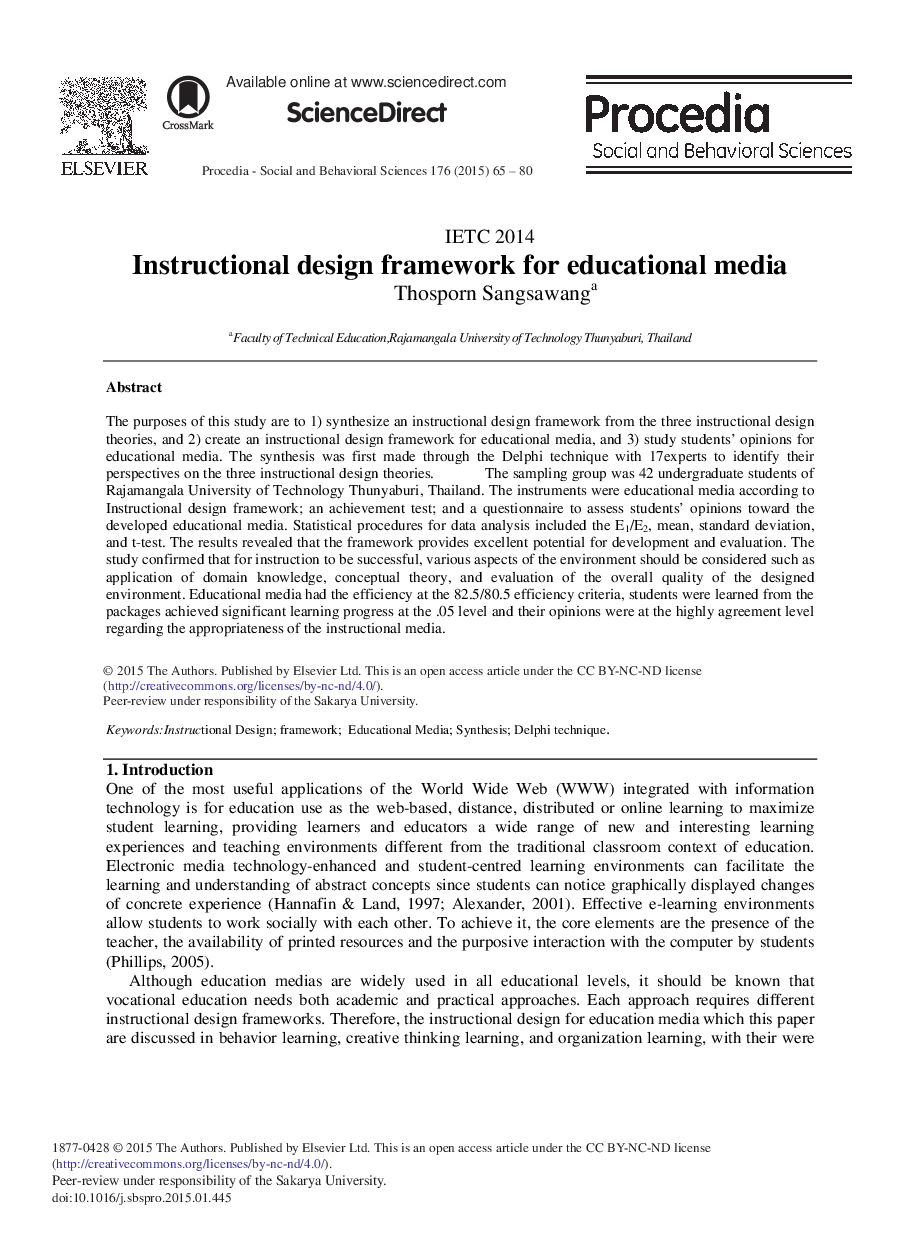| Article ID | Journal | Published Year | Pages | File Type |
|---|---|---|---|---|
| 1110822 | Procedia - Social and Behavioral Sciences | 2015 | 16 Pages |
The purposes of this study are to 1) synthesize an instructional design framework from the three instructional design theories, and 2) create an instructional design framework for educational media, and 3) study students’ opinions for educational media. The synthesis was first made through the Delphi technique with 17experts to identify their perspectives on the three instructional design theories. The sampling group was 42 undergraduate students of Rajamangala University of Technology Thunyaburi, Thailand. The instruments were educational media according to Instructional design framework; an achievement test; and a questionnaire to assess students’ opinions toward the developed educational media. Statistical procedures for data analysis included the E1/E2, mean, standard deviation, and t-test. The results revealed that the framework provides excellent potential for development and evaluation. The study confirmed that for instruction to be successful, various aspects of the environment should be considered such as application of domain knowledge, conceptual theory, and evaluation of the overall quality of the designed environment. Educational media had the efficiency at the 82.5/80.5 efficiency criteria, students were learned from the packages achieved significant learning progress at the .05 level and their opinions were at the highly agreement level regarding the appropriateness of the instructional media.
